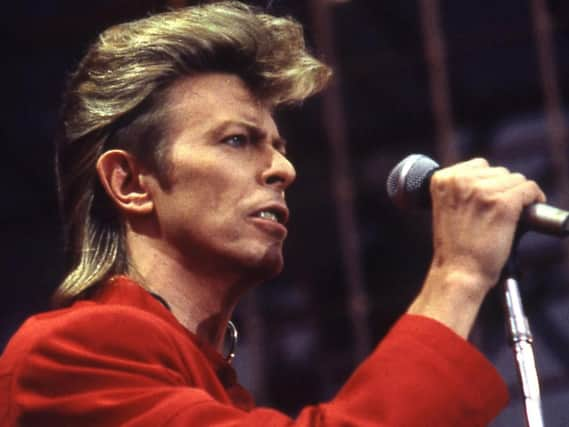Roker Park gig was start of a lifetime's love for Bowie fan Bethany


Former Sunderland Echo journalist Bethany Usher is now a journalism lecturer at Teesside University and contributed a chapter on Bowie to an academic study of celebrity.
The commercial popularism of Bowie’s mid-80s output may not have been hugely popular with some of his older fans, but for the young Bethany it was the start of an obsession.
Advertisement
Hide AdAdvertisement
Hide Ad

“I lived in Bright Street, when the Glass Spider tour was on,” she said.
“I was dancing on the doorstep to Modern Love and I asked my mam if she would buy it for me, which she did the next day.
“So it was all about being a child and living in the shadow of Roker Park.
“My era was through the 90s. I had all the Q Magazines right through from 1989, with each time he appeared.”
Advertisement
Hide AdAdvertisement
Hide Ad

Bowie’s experiments with a hard rock sound in the band Tin Machine were widely panned at the time, but Bethany believes it may ultimately have been responsible for the singer’s career longevity, freeing him from commercial pressure to keep churning out the greatest hits rather than writing new material.
“He was released by his record label, so he could do what he wanted,” she said.
“He was freed to be a creative artist. I do think that’s how it works through that period, he was able to become an autonomous artist again.”
While his former record labels kept repackaging the classic material, Bowie himself continued to develop as an artist.
Advertisement
Hide AdAdvertisement
Hide Ad“A lot of the packages that were released were not released by him but by the record companies who owned it, so the public had two versions of Bowie, the Bowie of previous eras and then Bowie being himself,” said Bethany.
One of the things that was important in his resurgence in recent years was his uncharacteristic silence: “He always used to give loads of interviews – he was one of the most free musicians in giving up his time for the media,” said Bethany.
“He would do loads of interviews about establishing the latest character or album – in the Ziggy Stardust era, he would even do interviews as Ziggy, rather than David Bowie.
“But his recent silence has allowed people to project the Bowie that they want on to him.
Advertisement
Hide AdAdvertisement
Hide Ad“When you see the mugs, the t-shirts in Top Shop, they feature the Bowie of the 70s and that was very clever. When he released new material, there was a sense that it was an extension of that body of work, even if it was 34 years later.
“All he did for the cover of ‘The Next Day’ was to have Heroes crossed out and The Next Day written in.
“It’s like he was saying, ‘If you want me to be that Bowie, here you go, but I will still be writing this.’
“People could have him as they wanted to.”